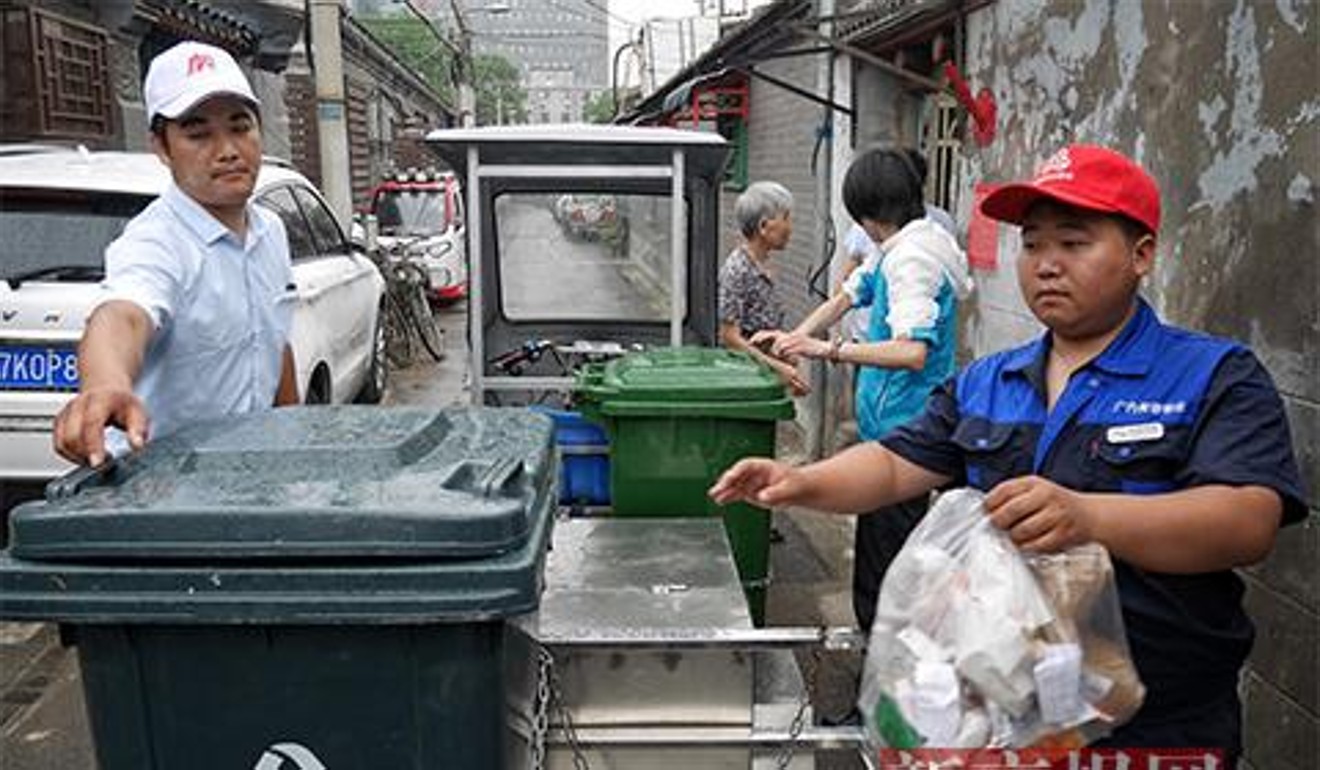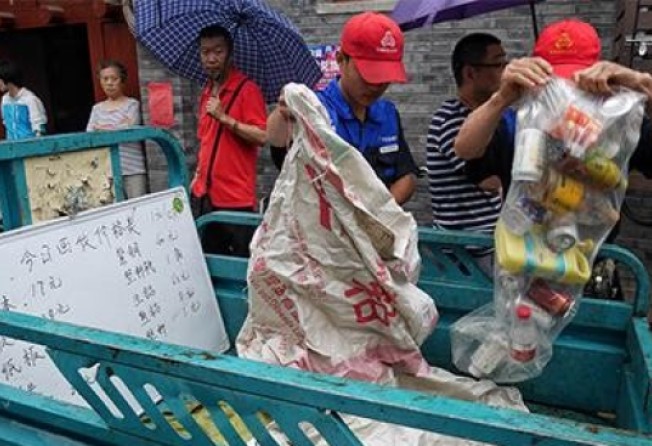
China ups war on waste with prizes for Beijing households sorting their own rubbish and recycling
Points earned for accurately classifying rubbish for collection can be exchanged for rewards including toilet paper and seasoning boxes in capital’s pilot scheme

Beijing has found a novel way to incentivise its residents to sort their household rubbish, by awarding them points to exchange for prizes, as part of a national push to reduce China’s mountains of waste, it has been reported.
Residents in the Xicheng district of the capital were told that kitchen waste and other rubbish sorted accurately for collection from their homes would be rewarded with points, The Beijing News reported on Thursday.
The pilot project sent garbage trucks into traditional hutong, or alleyway, neighbourhoods to collect sorted residential rubbish.
Households could also reserve a collection of recyclables such as newspapers that could be sold to waste disposal plants for processing and incineration at a higher price than general rubbish.
Points earned could be exchanged for small prizes such as toilet paper, seasoning boxes and summer mats, the report said.

The cost of processing Beijing’s waste could have been cut by 64 per cent to 1.53 billion yuan (US$240 million) in 2015 if waste sorting had been in place, it stated.
The aim of the latest of China’s waste-sorting initiatives is for dozens of cities – also including major hubs such as Shanghai, Tianjin and Chongqing – to carry out sorting for all household rubbish by 2020, according to the State Council.
Tens of thousands of volunteers have also been recruited to help the efforts.
China’s largest municipal producer of rubbish, the capital is included in the first phase of the national plan to promote garbage classification.
Addressing its mounting waste problem also follows research suggesting that its landfill sites will be unable to accommodate more rubbish in a few years’ time.
A 2017 report from Renmin University in Beijing found that processing urban waste in Beijing, by incineration, produced emissions of dioxin, which have been linked to cancer, but that classifying rubbish properly could reduce the risk of cancer by 25 per cent, state broadcaster CGTN reported.